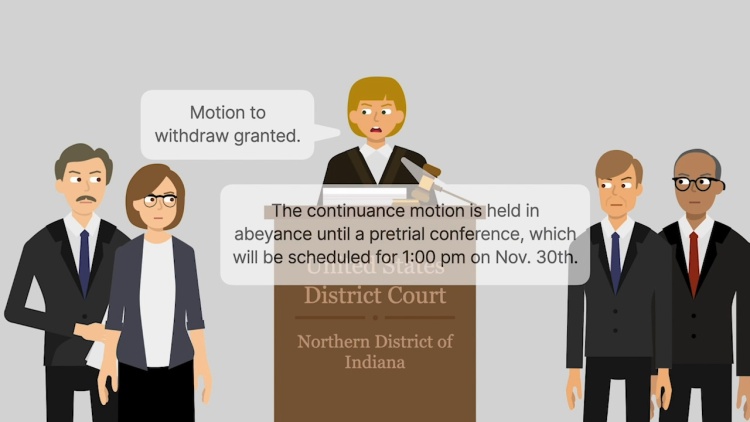Olson v. Alick
United States Court of Appeals for the Seventh Circuit
234 F.3d 1273 (2000)
- Written by DeAnna Swearingen, LLM
Facts
Donn Olson (plaintiff) sued Alick’s Drugs, Inc. (Alick) (defendant) for discrimination in federal court in May 1998. Litigation proceeded in an orderly fashion. As trial neared, however, negotiations broke down. Olson’s attorneys agreed to a settlement conference on November 12, 1999 without consulting him. Olson did not attend due to work commitments. Olson’s lawyers delayed in informing Alick and the judge. Olson’s attorneys moved to withdraw, which the judge granted. Alick did not object to a requested continuance, but the court did not rule on the postponement, instead ‘advising’ Olson to attend the November 30 pretrial conference. Olson was five minutes late to the conference due to a work emergency. Olson had tried phoned Alick’s attorney. Before Olson’s arrival, the judge granted Alick’s motion to dismiss pursuant to Federal Rule of Civil Procedure (FRCP) 16(f). The following day Olson wrote a letter explaining his tardiness and absence from the earlier conference and moved to set aside the dismissal. Alick treated Olson’s motion as a FRCP 60(b) motion for relief from a judgment on the grounds of ‘mistake, inadvertence, surprise, or excusable neglect.’ On that basis, the court denied the motion, finding that Olson had not demonstrated “excusable neglect nor hope for better performance in the future,” partially based on the erroneous ground that the Alick had opposed postponing the trial. Olson appealed to the United States Court of Appeals for the Seventh Circuit.
Rule of Law
Issue
Holding and Reasoning (Coffey, J.)
What to do next…
Here's why 907,000 law students have relied on our case briefs:
- Written by law professors and practitioners, not other law students. 47,100 briefs, keyed to 996 casebooks. Top-notch customer support.
- The right amount of information, includes the facts, issues, rule of law, holding and reasoning, and any concurrences and dissents.
- Access in your classes, works on your mobile and tablet. Massive library of related video lessons and high quality multiple-choice questions.
- Easy to use, uniform format for every case brief. Written in plain English, not in legalese. Our briefs summarize and simplify; they don’t just repeat the court’s language.





